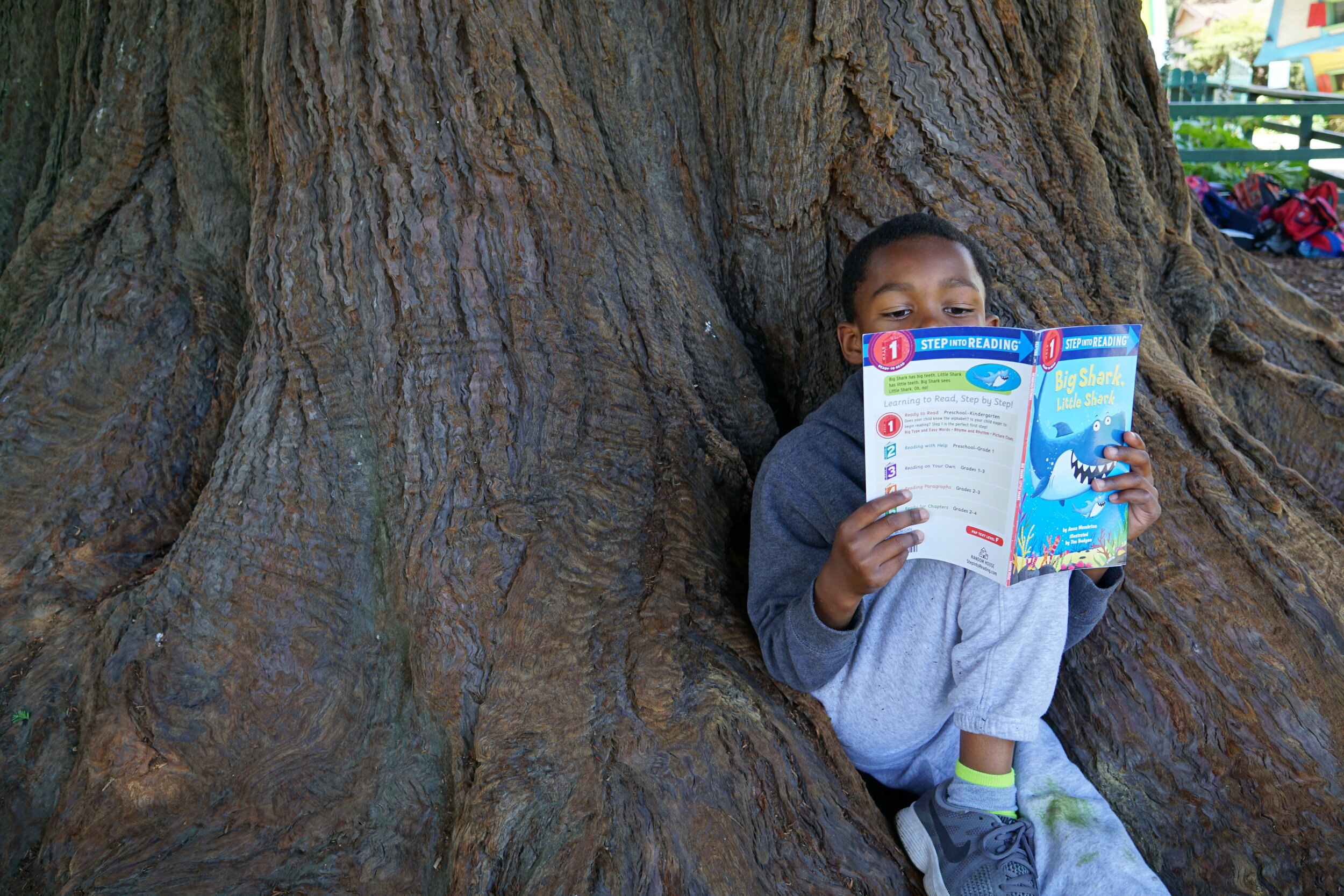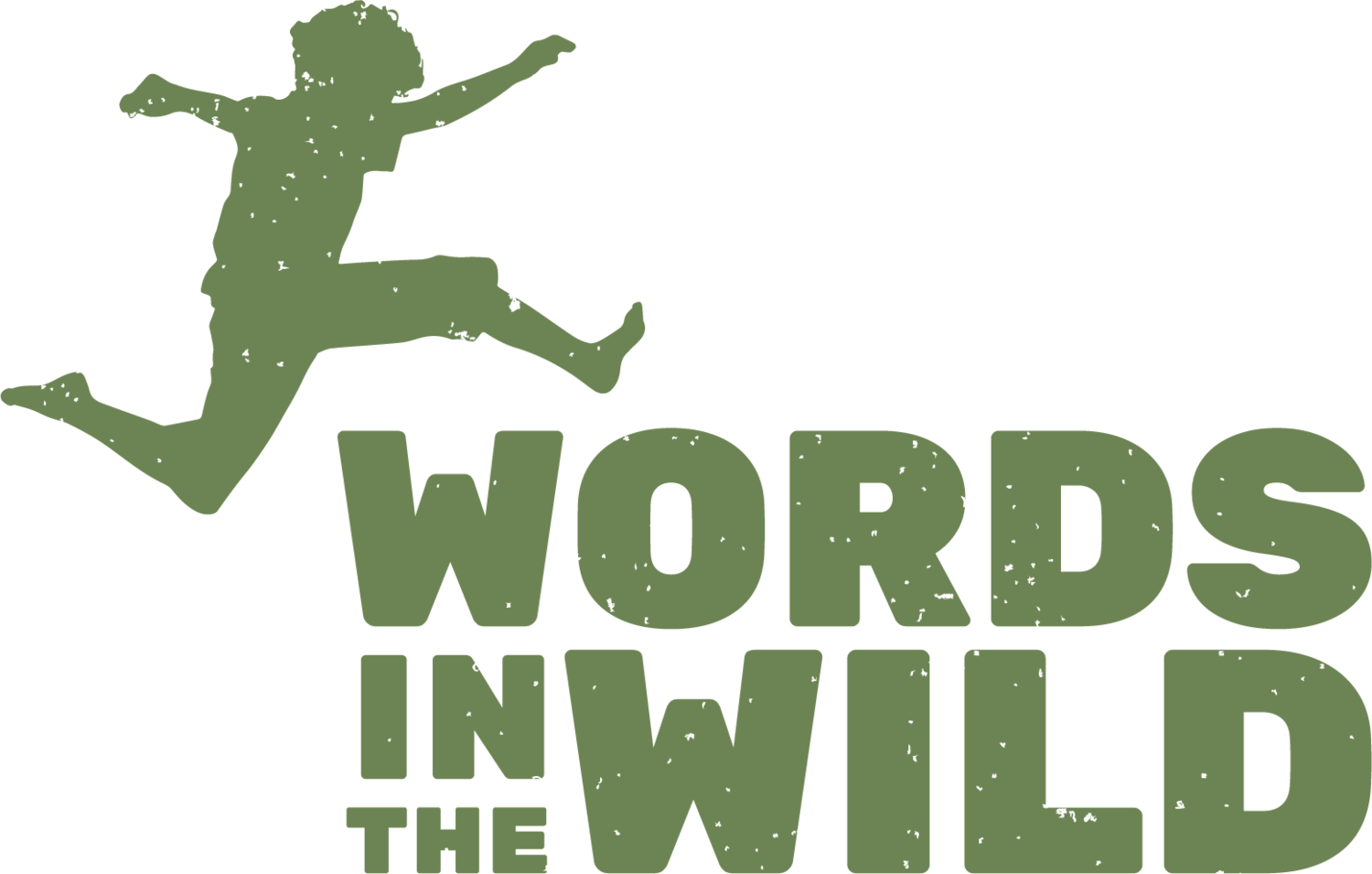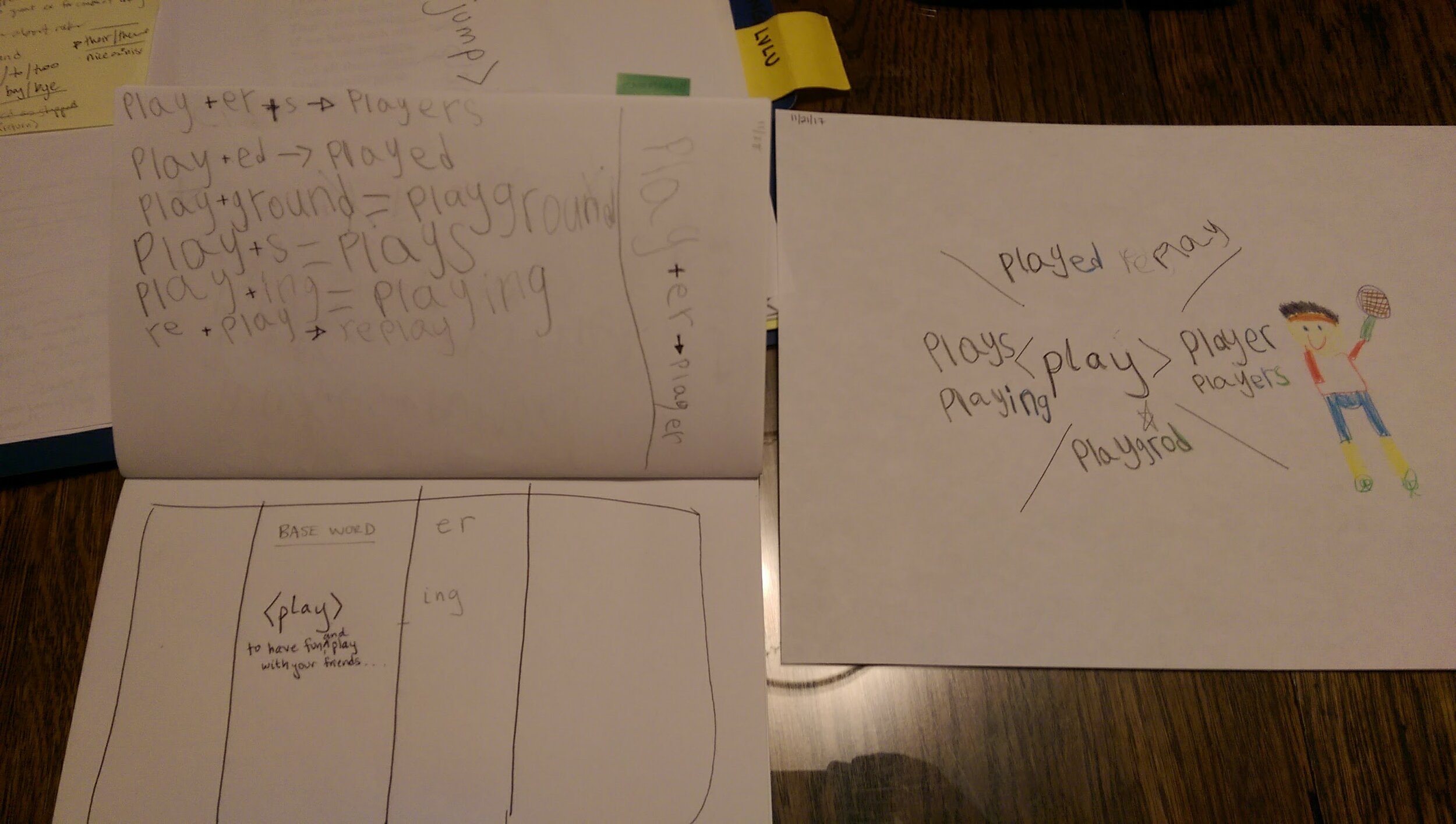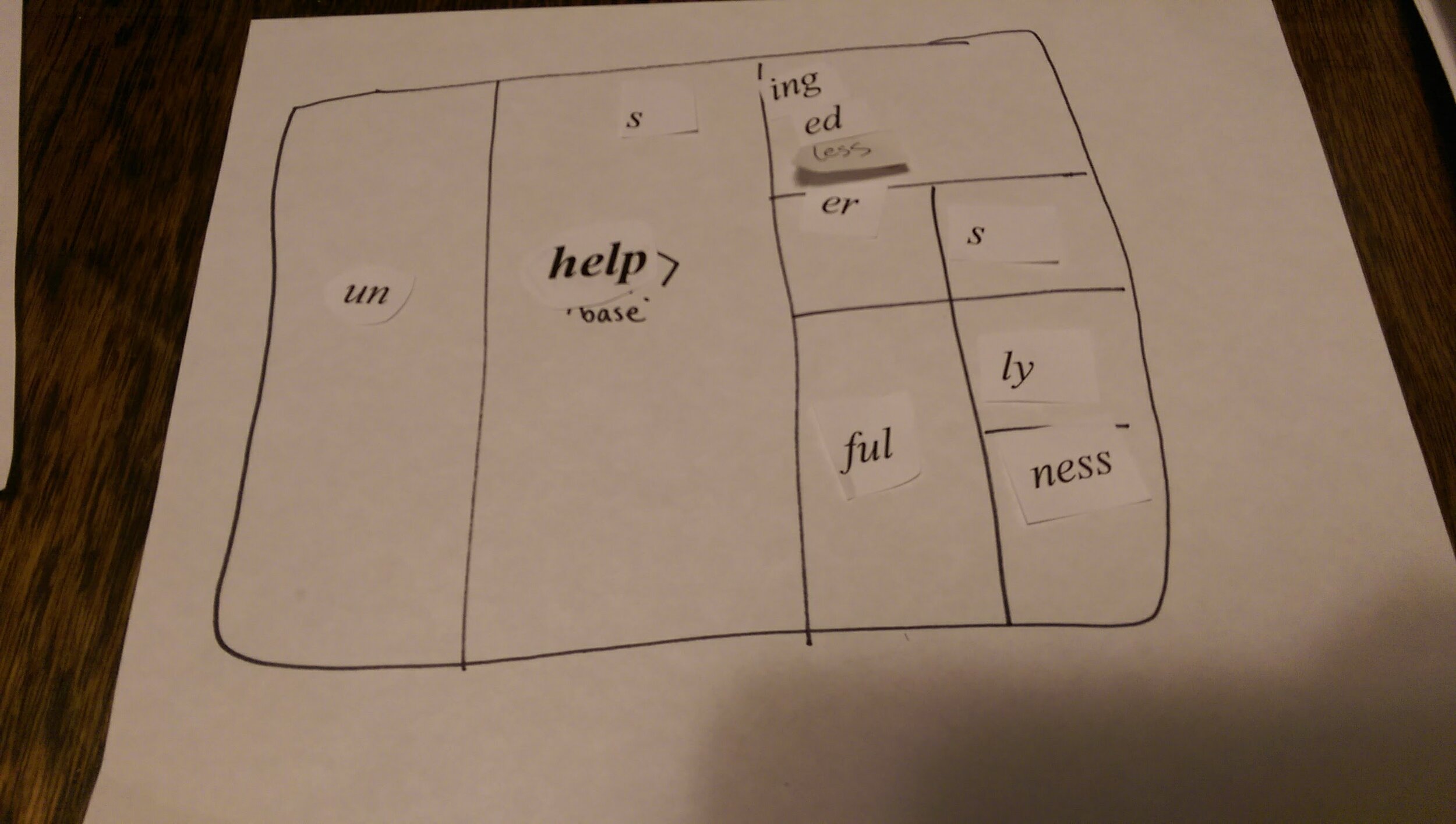
Summer Camp 2024
Oakland, CA
Campers get an academic boost while engaging in fun outdoor adventures!
Our approach to reading — grounded in research and infused with joy — builds literacy skills AND confidence. Our young word scientists investigate words in the same ways that they’d investigate the details of an oak leaf or a butterfly. Our camp is located in Oakland, CA, based at St. Paul’s Episcopal School.
Words in the Wild Summer Camp
Learning, fun, curiosity & socialization through meaningful explorations
Campers grow their love of reading and writing through garden science, art, games, and more in the gardens of Fairyland, Lake Merritt Garden Center, and the Kaiser Rooftop garden. Our young scientists sharpen their powers of inquiry as they observe, document, and explore both language and nature.
Hesitant readers and writers thrive in this nurturing environment by using their literacy skills for meaningful activities like reading about the life cycle of worms in order to find information we need to care for our worm bin.
Campers blossom into garden scientists as they explore the natural world in three different environments: our classroom sensory garden, the St. Paul’s Episcopal School courtyard gardens, and the diverse Lake Merritt botanical gardens. Campers will exercise their bodies as well as their brains on the playground and in Lake Merritt's wide-open fields.
Note that St. Paul’s offers early drop off and after-camp care to accommodate various pickup schedules!
In a small group, campers will:
Grow their love of reading and writing through garden science, art, games, and spending time in nature
Improve spelling, expand vocabulary, and deepen reading comprehension through Structured Word Inquiry (reading instruction based in linguistic research)
Investigate words in context and explore stories of words to deepen understanding
Use these spelling and vocabulary skills to develop stronger reading comprehension
Participate in deep nature explorations
Words in the Wild CITs: Saplings
Rising 7th to 9th graders can be part of our Counselor-in-Training program
2024 Dates:
Session 1: 06/17/2024 - 06/28/2024 (No Camp June 19)
Session 2: 07/01/2024 - 07/12/2024 (No Camp July 4)
Session 3: 07/15/2024 - 07/26/2024
Session 4: 07/29/2024 - 08/09/2024
Camp runs from Monday - Friday, 9:00 AM - 3:00 PM, with options for before & aftercare
How does camp differ across grade levels?
There is ONE registration for ALL grade levels. Depending on enrollment numbers, we will organize Seedlings (Rising 1st) and Sprouts (Rising 2nd & 3rd) into small groups for a few of our activities. We also many activities as a whole group, and usually eat lunch, walk to the park, and play running games all together.
Depending on our campers, our team may decide to make our excursions shorter distances for our Seedlings. By dividing into small groups, tailor the Seedling’s word science explorations to beginning readers. With curiosity as our guide, we explore both nature and words- Reading is an adventure!
Our Sprouts (rising 2nd & 3rd graders) may go on slightly longer excursions. This group will also go deeper into word science, exploring word meanings and word parts. Reading and writing become vital tools in our scientific tool belt to help us explore the world around us.
ALL children practice their new skills in a supportive group of friends and build self-esteem to become confident readers and writers while exploring many outdoor locations in Oakland, CA.
All of our young scientists sharpen their powers of inquiry as they observe, document, and explore both language and nature. In interactive groups students investigate the stories that words tell, using linguistic evidence to build their spelling, vocabulary, and reading.
While learning about nature, children develop critical literacy skills in:
reading and understanding text
enjoying and using text for a purpose
building oral and print vocabulary
making connections between spelling and meaning
writing independently and fluently
We de-emphasize reading for reading’s sake. Instead children apply scientific practices to studying language AND nature, such as:
observing closely
recording data
making predictions
comparing evidence to hypotheses
sharing findings with friends
Children enjoy a well-rounded summer camp experience with:
collaborative games and challenges
art projects like seed mandalas and pop up books
dancing and singing along to our favorite Earth science song
relaxing with friends, telling stories, and sharing meals
exploring the natural world through bug hunts and food tasting parties
The beauty of this program is that literacy is embedded in hands-on garden science and connected to arts, cooking, and other enrichment activities. Children boost essential reading and writing skills, but it just feels like a fun, messy, and memorable summer camp experience!
Field journal example with word sums and the beginning of a matrix for the base <play>, with an illustrated word web on the right.
Example of using morpheme cards to make a matrix for the base <help> (as an alternative to writing out the morphemes)
How is it unique?
Evidence-based: Structured Word Inquiry approach to language and literacy development
Student Centered: Taught by educational therapists and graduate students with experience connecting with diverse learners
Strengths-based: A family intake conversation helps us get to know the child’s interest, hobbies, and skills
Hesitant readers and writers thrive in this nurturing environment by using their literacy skills for meaningful activities like reading about the life cycle of worms in order to care for our worm bin, documenting changes in the garden, and learning about the natural wonders that surround them.
Emergent (left) and advanced (right) examples of a matrix and accompanying word sums for the base <call>, along with a self-portraits, inspired by Maya Cristina Gonzalez’s book Llamame Árbol/Call Me Tree.
More About Us
Words in the Wild in a nonprofit 510(c)(3) that brings reading and writing to the great outdoors for all children. This unique program was created and is staffed by Words in the Wild educational therapists, reading specialists, and naturalists.
Teachers
Campers are led by teachers with specialized training, including Words in the Wild teaching fellows and lead teachers Alexis Filippini and Ryan Nepomuceno, as well as experienced Words in the Wild educators.
Our Teaching Fellows are graduate students and experienced educators participating in on-going training in strengths-based reading instruction through the Words in the Wild Fellowship Program.
All teachers have passed comprehensive background checks.
Safety Protocols
Our program takes place largely outdoors and is a very low risk for virus transmission. However, we will still take high levels of precaution around personal health and follow in accordance with St. Paul’s health and safety guidelines.
Day porters will maintain a high level of cleaning and disinfecting throughout the day, and the cleaning service will clean and disinfect all areas of campus nightly. Staff and campers who will be in the park or on excursions will have disinfecting and cleaning supplies.
Only authorized personnel will be allowed on campus. Delivery personnel have a designated area to drop off packages.
In addition to all of the above protocols, St Paul’s asks all parents to abide by their Community Promise and Covid 19 Guide.
Logistical Questions? Content or "Fit" Questions?
If you have any questions, please feel free to contact us:
email: team@wordsinthewild.org | call/text: 510.500.5380 | schedule a call
What else do you offer?
Check out some of our free downloads for fun activities you can do with your kids now!
1:1 Educational Therapy
If your child needs more support, educational therapy deepens reading and writing skills through individualized instruction with a teacher who specializes in emerging readers. We use a Structured Word Inquiry approach to build a deep and lasting understanding of English spelling and vocabulary in order to ultimately improve reading comprehension. Recent research has shown that teaching through morphology is more effective than phonics alone, and in particular for students with learning differences.
Family Literacy Workshops
Let's explore ways to share the joy of reading and writing — as a natural part of a busy family's day. Using a strengths-based perspective, our workshops identify ways that families already practice shared literacy, with special attention to families with special needs. We will also come up with new activities that work for your complex lives — so bring your curiosity!
In this workshop, we explore multilingual storytelling, audiobooks, neighborhood exploring, and other fun and connecting ways that families can foster a love of reading in their young children.
Contact team@wordsinthewild.org for more information about your school, PTA, or organization hosting an event.
WordLab: After School Enrichment
Bring Word Science to your school! WordLab is an enrichment program where young Word Scientists are invited to explore the wonders of the natural world around them while building vocabulary and practicing skills in reading and writing. Through inquiry-based learning students observe phenomena with all 5 senses and learn to ask questions, gather information, and conduct experiments to deepen their understanding of natural processes and language. This high-energy class is designed to get kids up and moving!
Our approach — grounded in research and infused with joy — builds reading and writing skills and confidence by teaching children to investigate words in the same ways that they’d investigate the details of a maple leaf or a butterfly.
Learn more about our friendly community of K-8th grade Word Scientists here!




















